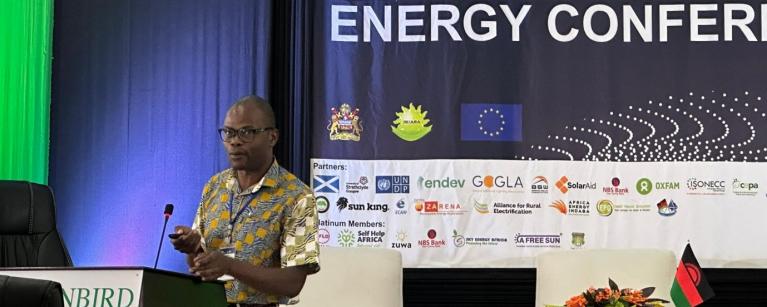In collaboration with the Renewable Energy Industries Association of Malawi, the Ministry of Energy, and other key stakeholders, Oxfam in Malawi hosted the 2025 National Energy Conference from 30th July to 1st August 2024 under the theme “Unlocking Finance for Energy Security.”
During the conference, Oxfam presented findings from a budget analysis conducted in partnership with the Centre for Environmental Policy and Advocacy and the Civil Society Network on Climate Change (CISONECC). This analysis was part of the European Union funded ‘Promoting Equitable Access to Clean Energy’ (PEACE) Project.
Although the energy sector’s budget allocation for 2025/26 has increased by 57% on paper, the real value of this increase is significantly reduced when adjusted for inflation. Similarly, the Ministry of Energy’s budget shows a 32% increase, but again, inflation-adjusted figures reveal a much less optimistic picture, raising serious concerns about the future of rural electrification.
In the 2025/26 fiscal year, the energy sector is set to receive only 6% of the Total Government Expenditure (TGE), equivalent to 2.85% of GDP. This is considerably lower than allocations to other critical sectors such as health, agriculture, education, and public debt servicing. Despite its central role in driving economic development, energy remains underfunded.
The report also reveals that 96.4% of the Ministry of Energy’s development budget will be financed by development partners, with only 3.6% coming from domestic resources. This heavy reliance on donor funding raises concerns about national ownership, long-term sustainability, and the country’s ability to lead a just energy transition.
Oxfam calls on the Government of Malawi to:
- Increase domestic financing for the energy sector,
- Prioritize rural energy access, and
- Build a future where clean, reliable energy is accessible to all—starting with the most vulnerable communities.
📄 For more details on the analysis, access the full report on the downloads section.
